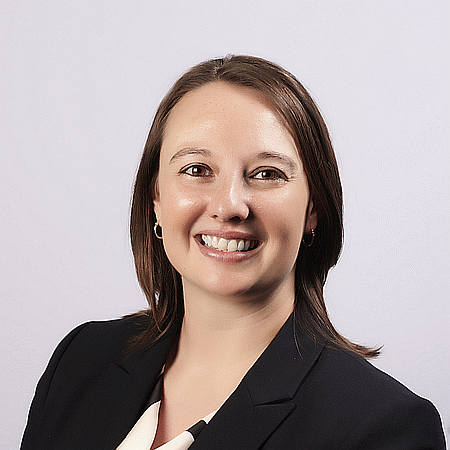by Melanie Keeney & Diane Metzger
As you know, many H-1B employees may be working remotely from their homes to help combat the spread of COVID-19. The applicable regulations require that notice be posted at the H-1B employee’s physical worksite location(s), regardless of whether the worksite is situated at an employer’s headquarters, a client office, a home office, etc. When an employer contemplates an H-1B employee working from home at the time of hire, the safest approach is to include the home location as a worksite on the LCA (along with any other known worksites), and the LCA is posted at the home location in addition to the other worksite locations. The current challenge for many employers is how to comply with the regulations when the remote location was not included on the original LCA. To ensure utmost compliance with statutory and regulatory requirements as workers may be shifting their physical worksites, we recommend the following approaches:
Hiring New H-1B Workers with Remote Worksites
If at the time of filing an H-1B petition, the employer contemplates providing the H-1B employee the option to work from home, the LCA posting notices should be posted both at the employer’s office where the H-1B worker will work and at his or her home. Both the employer’s office and the employee’s home would be included on the LCA and H-1B application, thus permitting the employee flexibility to work at either of those locations. Please note, however, that if the employee’s home is located in an area that is different from the designated employer worksite, additional review of the appropriate H-1B prevailing wage may be necessary.
Current H-1B Workers Who Need to Work Remotely Due to COVID-19 or for Other Reasons
H-1B Worker Remote Location is Within the Same MSA
There is some good news — If the work-from-home option was not included in the original LCA or corresponding H-1B petition, and the employee’s home is located within the same Metropolitan Statistical Area (“MSA”), there is no need to file a new LCA or an amended H-1B petition. However, as noted below, there is a posting obligation.
An MSA is defined as, “the area within normal commuting distance of the place (address) of employment where the H-1B nonimmigrant is or will be employed. There is no rigid measure of distance which constitutes a normal commuting distance or normal commuting area, because there may be widely varying factual circumstances among different areas.” 20 C.F.R. § 655.715. For those employers with headquarters in the St. Louis area, the corresponding MSA includes: St. Louis City and County, Bond, Calhoun, Clinton, Jersey, Macoupin, Madison, Monroe, and St. Clair counties in Illinois and Franklin, Jefferson, Lincoln, St. Charles, and Warren counties in Missouri.
The previously certified LCA or associated posting notice must be posted at the employee’s home for ten consecutive business days in 2 locations, and the posted notices must be placed in the Public Access File when taken down. While this may seem “silly,” it is the safest approach. Please note that although in 2017, the DOL’s Wage and Hour Division provided informal guidance that it would not enforce the posting requirement at an H-1B employee’s personal residence, these comments are not binding on USCIS. Hence, the best practice remains to post the LCA notice at the H-1B employee’s home if he/she will be regularly working remotely from there.
Current H-1B Workers with Remote Worksites Outside the MSA
If the H-1B employee will be working remotely from home and lives in a different MSA than the worksite already listed on the LCA, employers may be able to utilize the “short-term placement provision” of the H-1B regulations, which permit H-1B employees to work outside of the area of intended employment without requiring the filing of an H-1B amendment petition in limited circumstances. However, this option may not be optimal as this provision requires the employer to pay the H-1B employee certain incidentals in addition to the employee’s salary, and this provision is significantly time-limited (30/60 days, depending on the circumstances). Furthermore, an employer may not utilize the short-term placement option if it already employs H-1B workers in that worker’s same occupation in that same geographic location (MSA). Employers may want to carefully consider and request the advice of counsel regarding the availability of the short-term placement option, as usage of this provision requires a very fact-specific analysis.
When the H-1B employee will regularly work outside the MSA and the short-term placement rules do not apply, the employer will need to file an amended H-1B petition.
What are the Employer Obligations if There is Insufficient Work for the H-1B Employee?
If the H-1B employee is without work to perform for a prolonged period of time and is effectively “benched,” the employer is still required to continue to pay the employee at the full wage stated on the H-1B petition. Payment may not be required if a worker is unable to work due to personal illness or voluntary absence requested by the employee, although careful consideration of whether FMLA, ADA, or other federal and state leave laws may apply. In these circumstances, workers may be able to utilize standard company leave benefits offered to the company’s U.S. workforce. Employers should carefully consider the relevant state and federal laws before taking action against any employee in these circumstances, including an H-1B visa employee.
What are the Employer’s Obligations if the H-1B Worker’s Employment is Terminated?
If the H-1B worker’s employment is terminated, the employer must offer to pay for the H-1B employee’s return transportation to his or her last country of residence. If the employee is unable to travel at this time due to COVID-19 restrictions or finds another employer, the employer should at the very least document the offer to pay for travel. Please note that the H-1B regulations require only the payment of the return transportation costs for the H-1B employee, and not the H-1B employee’s dependents or personal belongings. If the employer terminates an H-1B employee, there are also notification requirements to USCIS, and contacting counsel is recommended.
Can Employers Place H-1B Employees on Unpaid Leave?
This is very risky and would likely render the employer out of compliance and could negatively impact the H-1B worker’s status. Therefore, this course of action is not recommend.
Is there Any Change to an Employer’s I-9 Obligations in Light of COVID-19?
Please note that the USCIS has released a new I-9 Employment Eligibility Verification Form (edition date 10/21/19) that must be used starting May 1, 2020. Even with employers encouraging or requiring telework during the COVID-19 outbreak, the USCIS has not waived the requirement that employers or their authorized representatives review original documents in the new employee’s presence when completing Section 2 of the Form I-9.
We will continue to provide updated guidance and information as it becomes available from the DOL and USCIS.
Immigration – The Firm represents businesses, institutions of higher learning, and individuals with respect to immigration-related matters, including obtaining visitor visas, temporary and permanent work visas, consular processing of visas, obtaining citizenship, advising employers on employment sanctions issues, and defending employers faced with INS I-9 audits and investigations.
Melanie Gurley Keeney practices in the areas of employment, immigration and education law. Melanie has been included in Best Lawyers in America ® for 25 years, and has been recognized in all areas of her practice. She also has been named to Missouri & Kansas Super Lawyers ® lists for over 10 years, and has been rated one of the top 50 female lawyers in Missouri and Kansas. She was named a “Top Missouri Lawyer” by St. Louis Magazine and Kansas City Magazine for Immigration Law. Melanie has been distinguished as Best Lawyers ® St. Louis Immigration Law Lawyer of the Year in 2019, 2015, and 2012, and St. Louis Education Law Lawyer of the year in 2017. In 2016, Missouri Lawyers Weekly presented Melanie with the Women’s Justice Litigation Practitioner Award and in 2014, Washington University School of Law honored Melanie with the International Women’s Day Award for Employment Law. She has served as an adjunct professor at Washington University and is a frequent presenter on legal topics. Melanie is a founding Shareholder of the Firm and currently serves as the Chairperson of the Firm.
Diane Metzger practices in the areas of immigration law and employment law. From large multi-national employers to small employers who have no prior experience with our nations’ complex immigration laws, Ms. Metzger represents and provides counsel to clients with a wide range of business immigration needs, including but not limited to obtaining non-immigrant visas (e.g. H-1B, L-1, TN, E, O); applying for permanent residency (e.g., PERM, Schedule A, EB-1); navigating the naturalization process; consular processing and other applications made directly with the U.S. Department of State; out-bound immigration matters when U.S. employees are transferred abroad; and family-based immigration through U.S. citizen relatives.
Ms. Metzger also assists corporate clients with preventive advice and counsel, including advice on immigration-related corporate reorganization issues and corporate compliance & due-diligence matters including, I-9s, E-Verify, and immigration-related audits. Ms. Metzger regularly provides training to her clients.

 Diane E. Metzger
Diane E. Metzger Melanie Gurley Keeney
Melanie Gurley Keeney